Dear Readers,
AI plays a crucial role in our blog, helping us manage our time more effectively to keep the content flowing. While AI assists with content creation, which may lead to occasional spelling or grammar errors, our primary goal remains clear: to deliver meaningful insights to you. For important matters, please consult a specialist.
Thank you for your understanding and support.
Best regards,
Education.com.cy
Summary
Music has always been an integral part of human culture, transcending boundaries and connecting people across different walks of life. It is not merely a form of entertainment but a profound medium that influences our emotions, thoughts, and behaviors. The power of music lies in its ability to evoke deep emotional responses, foster creativity, and facilitate personal growth and self-reflection. This article delves into the multifaceted role of music in personal development, exploring how it can be harnessed as a tool for enhancing self-awareness, emotional intelligence, and overall well-being.
Introduction
Music has long been recognized as a powerful medium that transcends cultural and linguistic barriers. It has the unique ability to evoke emotions, trigger memories, and even influence behavior. This article delves into the multifaceted role of music in personal growth and self-reflection, exploring how it can serve as a tool for emotional regulation, cognitive development, and social interaction.
Main Sections
The Role of Music in Personal Development
Introduction
Music has always been an integral part of human culture, serving as a medium for expression, communication, and emotional release. Its influence extends beyond mere entertainment, playing a significant role in personal development and self-reflection. This article explores how music can be a powerful tool for personal growth, enhancing creativity, emotional intelligence, and overall well-being.
Music as a Creative Outlet
Music provides a unique platform for creativity. Engaging with music, whether through playing an instrument, composing, or simply listening, stimulates the brain and encourages innovative thinking. For many, music serves as a hobby that not only offers enjoyment but also fosters a sense of accomplishment and self-expression. The act of creating music can be particularly therapeutic, offering a constructive way to channel emotions and thoughts.
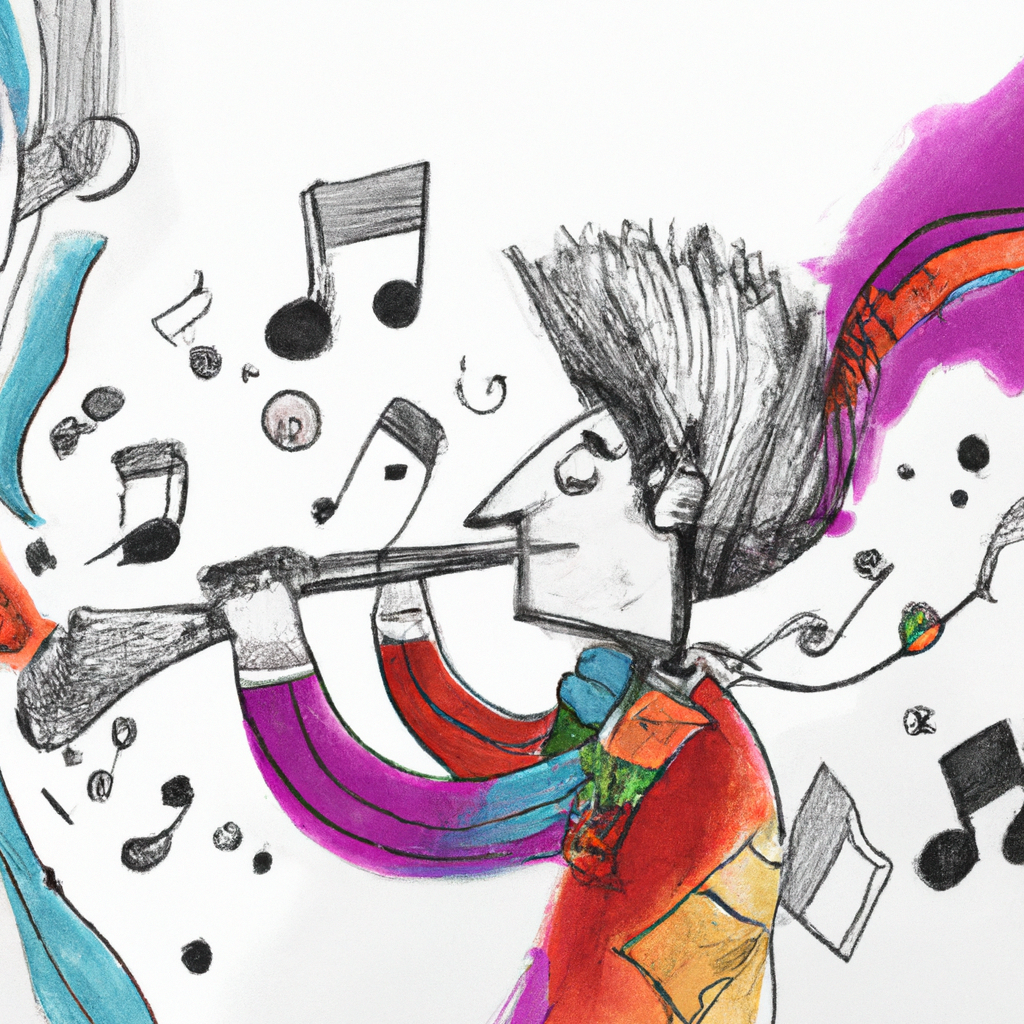
Emotional and Psychological Benefits
Listening to and creating music can have profound emotional and psychological benefits. Music has the power to evoke a wide range of emotions, from joy and excitement to sadness and nostalgia. This emotional engagement can lead to greater self-awareness and empathy. For instance, classical music often induces a sense of calm and tranquility, which can be beneficial for mental health. Conversely, music that resonates with personal experiences, such as songs about love or loss, can provide comfort and a sense of connection.
Music and Cognitive Development
Engaging with music can also enhance cognitive abilities. Learning to play an instrument, for example, requires discipline, patience, and practice, all of which contribute to improved concentration and memory. Studies have shown that musical training can enhance brain function, leading to better problem-solving skills and increased IQ. Furthermore, the structured nature of music, with its patterns and rhythms, can improve mathematical and spatial-temporal reasoning.
Social Interaction and Collaboration
Music often involves collaboration, whether in a band, choir, or orchestra. This collaborative aspect fosters social skills such as communication, teamwork, and empathy. Participating in group music activities can also build a sense of community and belonging, reducing feelings of isolation and loneliness. Through music, individuals can connect with others on a deeper level, sharing experiences and emotions that transcend words.
Music as a Reflection of Personal Experiences
Music often mirrors personal experiences and societal issues, making it a powerful tool for self-reflection. Songs that address themes of love, loss, struggle, and triumph can resonate deeply with listeners, prompting introspection and personal growth. By relating to the lyrics and melodies, individuals can gain insights into their own lives and emotions, leading to greater self-understanding and acceptance.
The Impact of Music on Behavior
The type of music one listens to can influence behavior and attitudes. For example, exposure to violent or aggressive music may reinforce negative behaviors, while uplifting and positive music can promote a more optimistic outlook. Understanding this influence can help individuals make conscious choices about their music consumption, using it as a tool for positive change and personal development.
Music and Technology
The advent of digital technology has transformed the way we create and consume music. Social media platforms and streaming services have made music more accessible than ever, allowing for a diverse range of musical experiences. However, this accessibility also comes with challenges, such as the potential for overexposure and the impact of algorithm-driven content. By being mindful of these factors, individuals can harness the benefits of music while mitigating potential downsides.
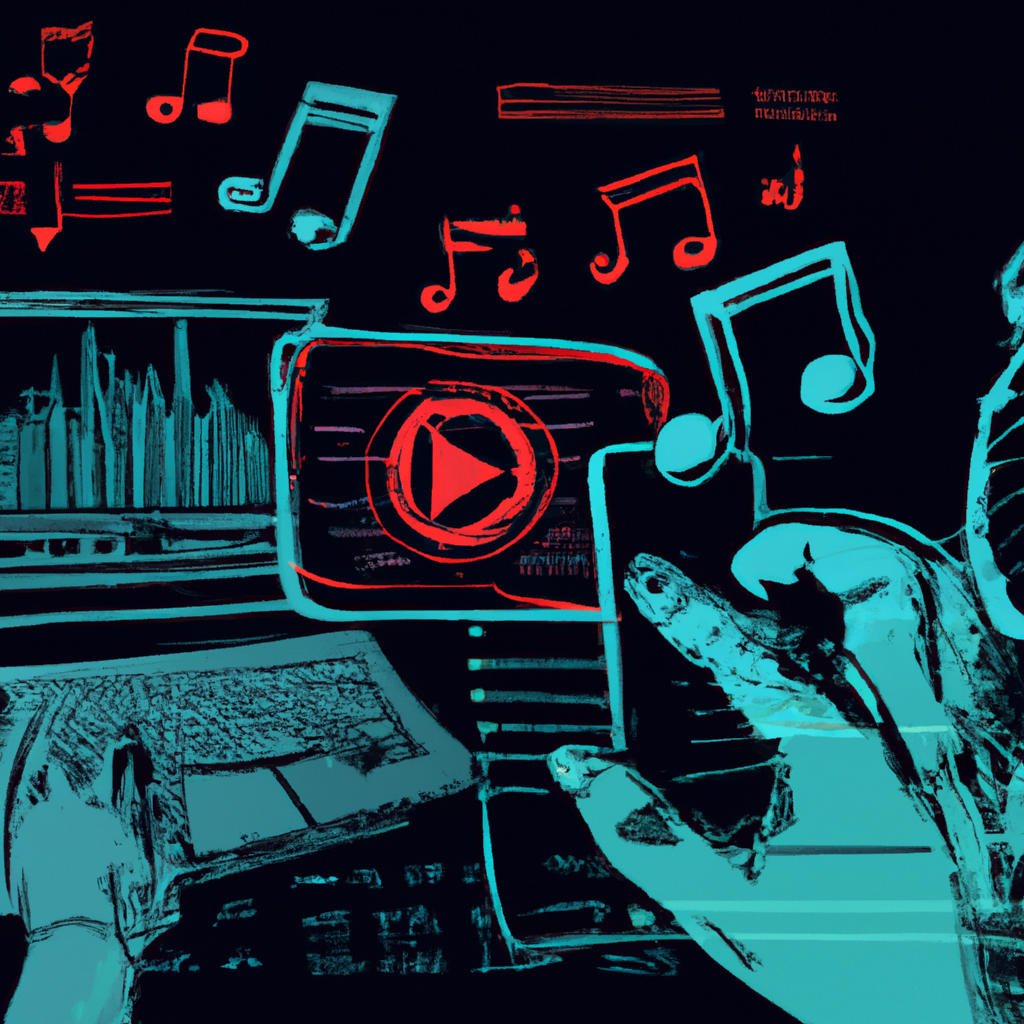
Find out how the strategies discussed in the article
"How Teaching a Song Can Improve Your Child’s Learning and Well-Being"can help address internet addiction in children and teens.
Music and Emotional Well-being
Introduction
Music has long been recognized as a powerful tool for influencing emotions and mental states. Its ability to evoke a wide range of feelings makes it an essential component in the journey of personal growth and self-reflection. This section will explore how music impacts emotional well-being, the science behind its effects, and practical ways to harness its power for personal development.
The Science of Music and Emotion
Music’s impact on emotions is deeply rooted in the brain’s response to auditory stimuli. When we listen to music, it activates various brain regions, including those associated with emotion, memory, and even motor functions. Neurotransmitters like dopamine are released, which can enhance mood and create a sense of pleasure. This biochemical response explains why certain songs can make us feel happy, sad, or nostalgic.
Music as a Mirror of Emotions
Music often serves as a mirror, reflecting our internal emotional states. For instance, listening to melancholic tunes when feeling down can provide a sense of validation and understanding. Conversely, upbeat music can elevate our mood and provide a temporary escape from stress. This reflective quality of music makes it a valuable tool for self-awareness and emotional processing.
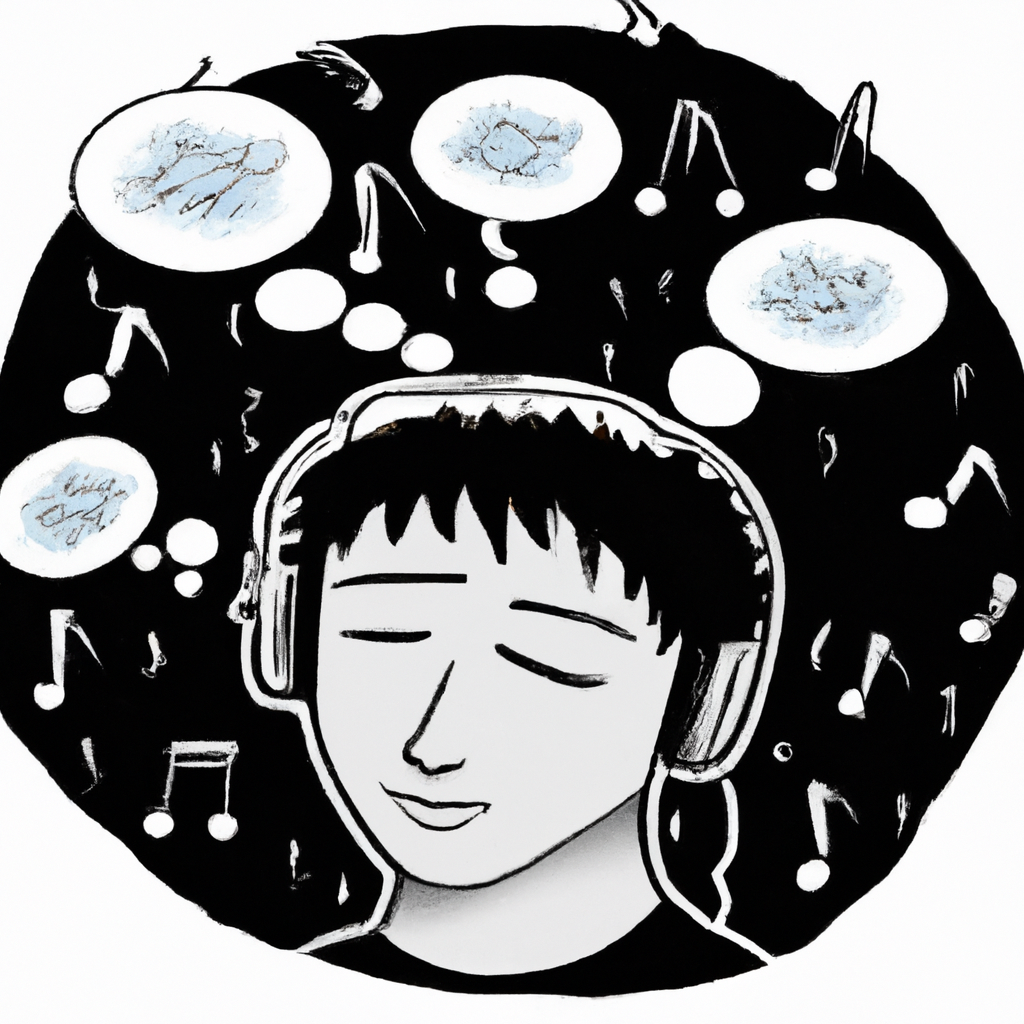
Therapeutic Uses of Music
Music therapy is a well-established field that utilizes music to address emotional and psychological issues. Therapists use music to help clients express emotions, cope with stress, and improve mental health. Techniques such as guided imagery with music, songwriting, and active music-making are employed to facilitate emotional healing and personal growth.
Personal Experiences and Anecdotes
Many individuals find solace and clarity through music. Personal anecdotes reveal that music can help manage emotions, reduce anxiety, and provide comfort during difficult times. For example, classical music is often cited for its calming effects, helping individuals achieve a state of relaxation and mental clarity.
Practical Applications for Emotional Well-being
-
Creating Playlists for Different Moods: Curating playlists tailored to specific emotional states can be a proactive way to manage feelings. For instance, a playlist of calming music can be used during stressful times, while an energizing playlist can boost motivation and productivity.
-
Mindful Listening: Engaging in mindful listening practices, where one focuses entirely on the music and its emotional impact, can enhance self-awareness and emotional regulation. This practice can be incorporated into daily routines as a form of meditation.
-
Music and Exercise: Combining music with physical activity can amplify the emotional benefits of both. Upbeat music can make exercise more enjoyable and help maintain a positive mood.
-
Journaling with Music: Writing while listening to music can facilitate deeper self-reflection. The emotional cues provided by the music can help unlock thoughts and feelings that might be difficult to access otherwise.
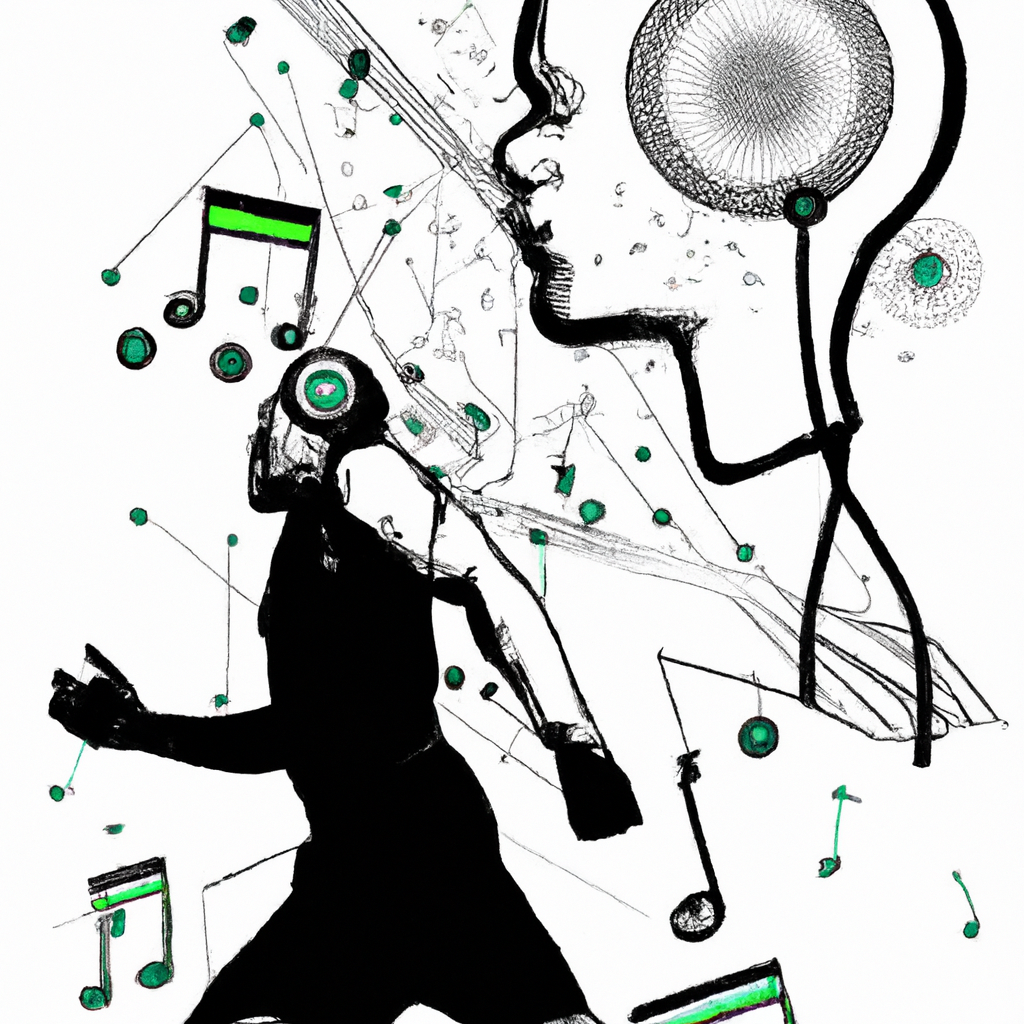
Music as a Medium for Self-reflection
Introduction
Music has long been recognized as a powerful medium for self-reflection and personal growth. It transcends cultural and linguistic barriers, offering a universal language that speaks directly to our emotions and experiences. This section explores how music serves as a mirror to our inner selves, helping us to understand and navigate our emotions, experiences, and personal growth.
The Emotional Resonance of Music
Music has a unique ability to evoke a wide range of emotions, from joy and excitement to sadness and nostalgia. This emotional resonance is not just a passive experience; it actively engages our minds and hearts, prompting us to reflect on our feelings and experiences. For instance, listening to a song that resonates with our current emotional state can help us process complex emotions and gain insights into our inner world.
Music and Memory
One of the most profound ways music aids in self-reflection is through its connection to memory. Certain songs can instantly transport us back to specific moments in our lives, evoking vivid memories and the emotions associated with them. This connection between music and memory allows us to revisit past experiences, reflect on how they have shaped us, and gain a deeper understanding of our personal growth journey.
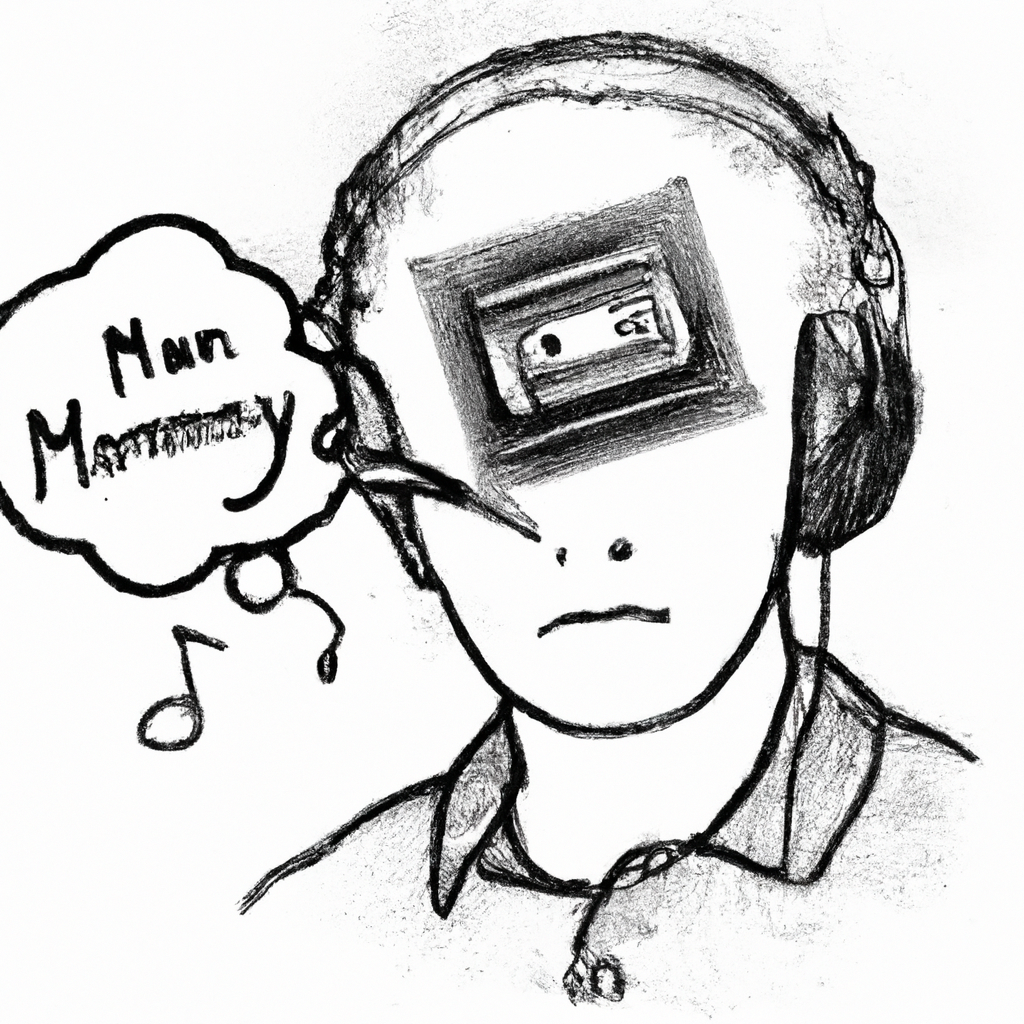
Music as a Therapeutic Tool
Music therapy is a well-established field that harnesses the power of music for emotional and psychological healing. Through guided listening, songwriting, and other musical activities, individuals can explore their emotions, express themselves creatively, and work through personal challenges. Music therapy provides a safe and supportive environment for self-reflection, helping individuals to gain insights into their thoughts and feelings and to develop coping strategies for life’s difficulties.
The Role of Lyrics in Self-reflection
Lyrics play a crucial role in how we connect with music on a personal level. Songs that tell stories or convey specific emotions can resonate deeply with our own experiences, prompting us to reflect on our lives and relationships. Analyzing the lyrics of a song can help us articulate our own thoughts and feelings, providing a framework for understanding and expressing our inner experiences.
Music and Mindfulness
Mindfulness practices often incorporate music as a way to enhance self-awareness and present-moment focus. Listening to music mindfully involves paying close attention to the sounds, rhythms, and emotions evoked by the music, without judgment or distraction. This practice can help us become more attuned to our inner experiences, fostering a deeper sense of self-awareness and emotional clarity.
Music and Identity
Our musical preferences are often closely tied to our sense of identity. The genres, artists, and songs we are drawn to can reflect our values, beliefs, and personal experiences. Exploring our musical tastes can provide valuable insights into who we are and what matters to us. Additionally, sharing music with others can be a powerful way to connect and communicate our identity to the world.
Music as a Catalyst for Change
Music has the power to inspire and motivate us to make positive changes in our lives. Whether it’s a song that encourages us to pursue our dreams, overcome obstacles, or embrace our true selves, music can serve as a catalyst for personal growth and transformation. By reflecting on the messages and emotions conveyed through music, we can gain the courage and inspiration to take meaningful steps towards our goals.
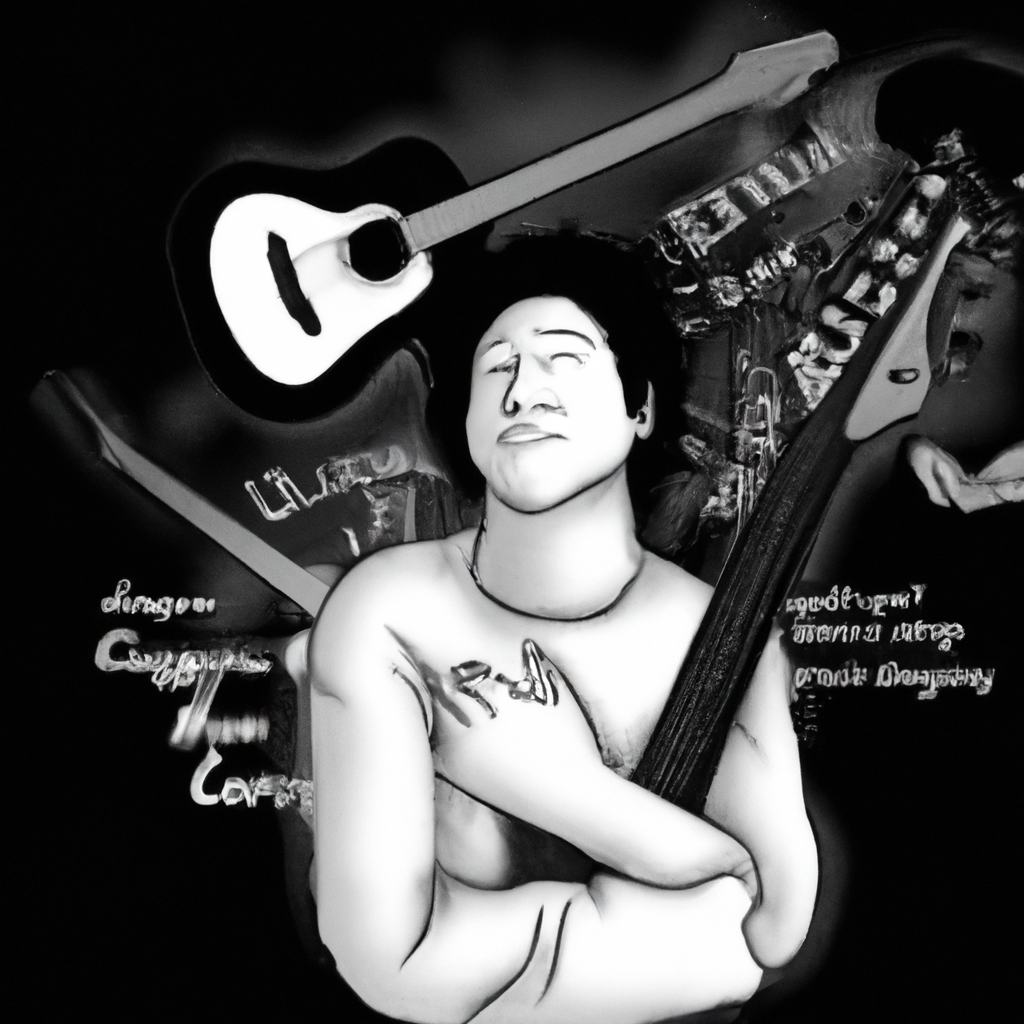
The Impact of Music on Cognitive Skills
Introduction
Music has long been recognized as a powerful tool for personal growth and self-reflection. Its influence extends beyond mere entertainment, touching various aspects of cognitive development and emotional well-being. This article delves into the multifaceted impact of music on cognitive skills, exploring how it can serve as a catalyst for personal growth and self-reflection.
Enhancing Memory and Learning
One of the most significant cognitive benefits of music is its ability to enhance memory and learning. Studies have shown that music can stimulate brain regions involved in memory, such as the hippocampus. For instance, learning to play an instrument requires memorizing notes, chords, and sequences, which can improve overall memory capacity. Additionally, background music has been found to aid in the retention of information, making it a valuable tool for students and professionals alike.
Improving Attention and Concentration
Music can also improve attention and concentration. The structured nature of music, with its rhythms and patterns, can help individuals develop better focus. This is particularly evident in activities that require sustained attention, such as studying or working on complex tasks. Listening to music with a steady tempo can create an optimal environment for concentration, reducing distractions and enhancing productivity.
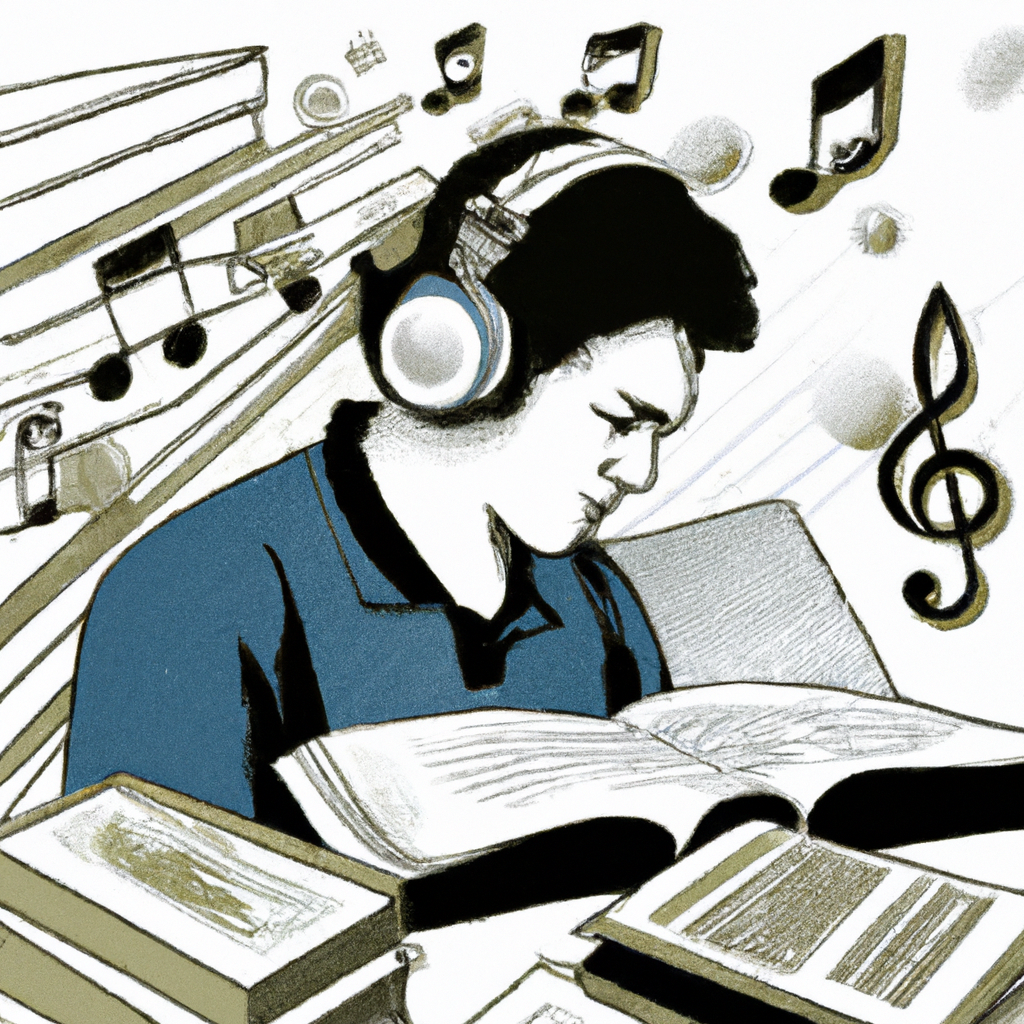
Boosting Creativity and Problem-Solving Skills
Creativity and problem-solving are other cognitive areas where music has a profound impact. Engaging with music, whether through listening or playing, encourages divergent thinking—a key component of creativity. Musicians often need to think outside the box, improvising and experimenting with different sounds and techniques. This creative process can translate to other areas of life, fostering innovative thinking and effective problem-solving skills.
Enhancing Emotional Intelligence
Emotional intelligence, the ability to understand and manage emotions, is another area where music plays a crucial role. Music evokes a wide range of emotions, from joy to sadness, and helps individuals develop empathy and emotional awareness. By connecting with the emotions conveyed in music, individuals can better understand their own feelings and those of others, leading to improved interpersonal relationships and emotional well-being.
Reducing Stress and Anxiety
The therapeutic effects of music on stress and anxiety are well-documented. Listening to calming music can lower cortisol levels, the hormone associated with stress, and promote relaxation. This is particularly beneficial in high-stress environments, such as workplaces or during exams. Music therapy is also used to treat anxiety disorders, providing a non-invasive and enjoyable way to manage symptoms.
Promoting Neuroplasticity
Neuroplasticity, the brain’s ability to reorganize itself by forming new neural connections, is another area where music has a significant impact. Learning to play an instrument or engaging in musical activities can stimulate neuroplasticity, enhancing cognitive functions such as memory, attention, and motor skills. This is particularly beneficial for children, whose brains are still developing, as well as for older adults, helping to maintain cognitive health and prevent age-related decline.
Fostering Self-Reflection and Personal Growth
Music provides a unique avenue for self-reflection and personal growth. The introspective nature of music allows individuals to explore their thoughts and emotions, gaining insights into their inner selves. This process of self-discovery can lead to personal growth, helping individuals understand their values, beliefs, and aspirations. Music can also serve as a form of self-expression, allowing individuals to communicate their feelings and experiences in a creative and meaningful way.
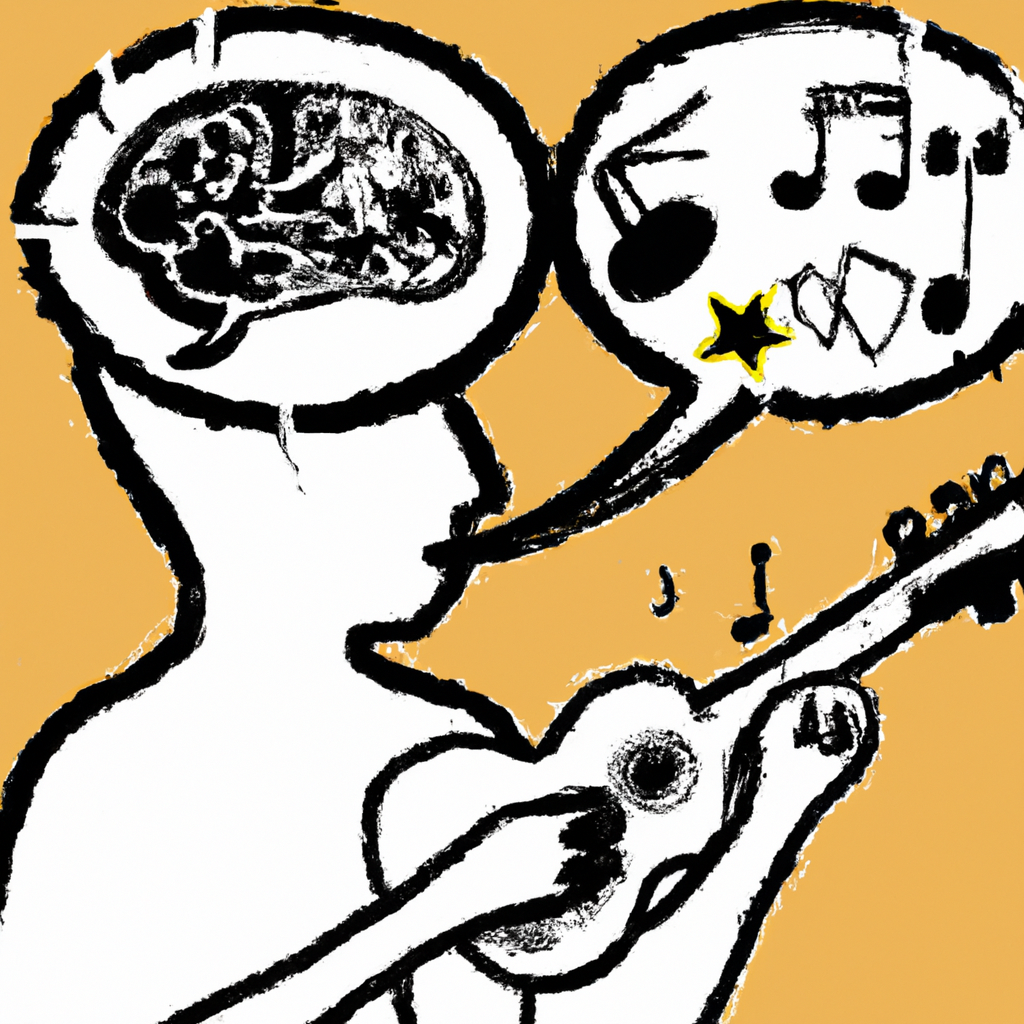
Practical Applications of Music for Personal Growth
Introduction
Music has long been recognized as a powerful tool for personal growth and self-reflection. It transcends cultural and linguistic barriers, touching the very core of human emotions and experiences. This article delves into the practical applications of music for personal growth, exploring how it can be harnessed to enhance creativity, emotional well-being, and cognitive development.
Enhancing Creativity
Music stimulates the brain in unique ways, fostering creativity and innovation. Engaging with music, whether through listening or playing an instrument, activates various brain regions associated with creativity. For instance, playing the piano or any other instrument requires coordination, concentration, and improvisation, all of which contribute to creative thinking.
- Improvisation and Composition: Engaging in musical improvisation or composition encourages spontaneous creative expression. This practice can help individuals think outside the box and develop original ideas in other areas of their lives.
- Cross-Disciplinary Creativity: Musicians often find that their creative skills transfer to other disciplines. For example, the problem-solving skills developed through music can enhance one’s ability to tackle complex challenges in fields like mathematics, science, and engineering.
Emotional Well-being
Music has a profound impact on emotional well-being. It can evoke a wide range of emotions, from joy and excitement to sadness and nostalgia. This emotional resonance makes music a valuable tool for self-reflection and emotional regulation.
- Emotional Expression: Music provides a safe outlet for expressing emotions that might be difficult to articulate through words. Composing or playing music allows individuals to process and release pent-up emotions, leading to emotional catharsis.
- Mood Regulation: Listening to music can significantly influence one’s mood. Upbeat, energetic music can boost motivation and positivity, while calming, soothing music can reduce stress and anxiety. Creating personalized playlists for different emotional states can be an effective strategy for mood regulation.
- Therapeutic Applications: Music therapy is a well-established field that uses music interventions to address emotional and psychological issues. Therapists use music to help clients explore their emotions, develop coping strategies, and improve their overall mental health.
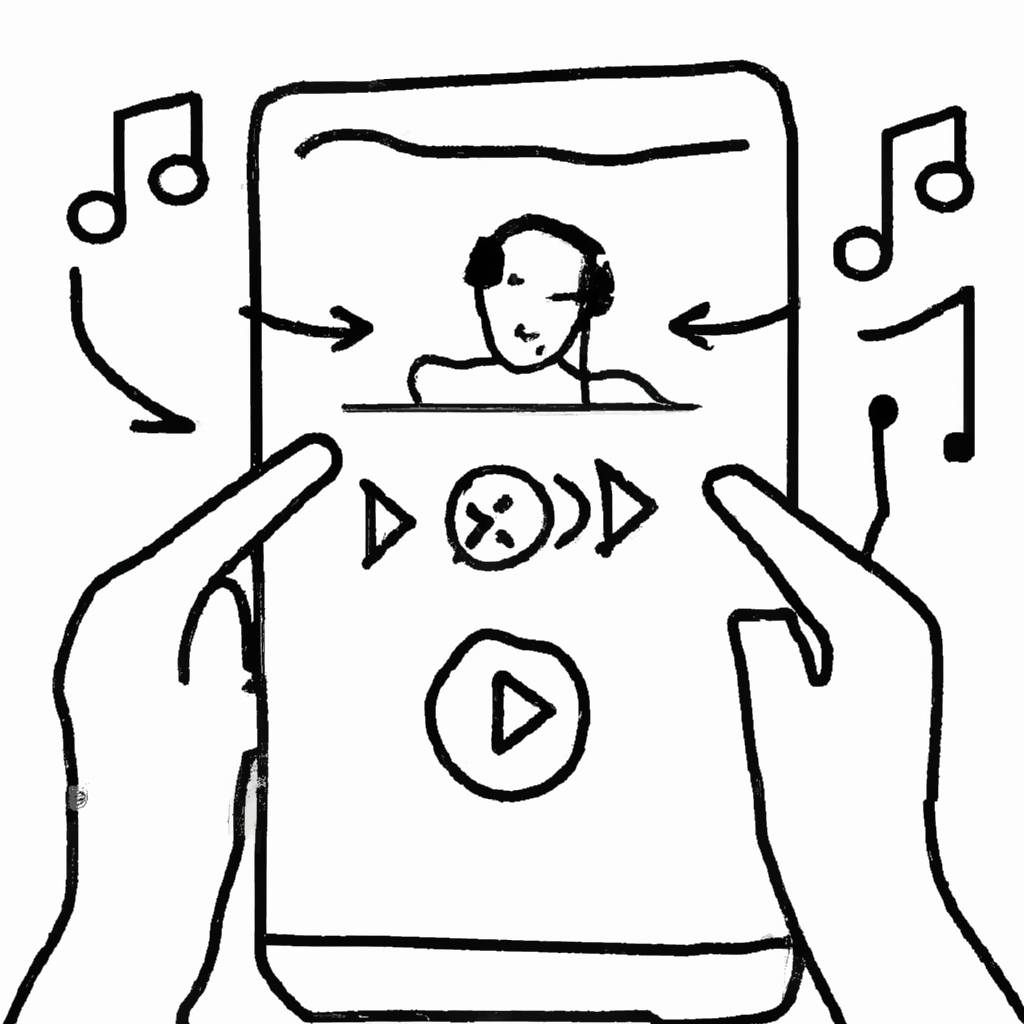
Cognitive Development
Engaging with music has been shown to enhance cognitive abilities, including memory, attention, and problem-solving skills. These cognitive benefits contribute to personal growth by improving overall mental functioning.
- Memory Enhancement: Learning and playing music involves memorizing notes, rhythms, and melodies, which can strengthen memory skills. Studies have shown that musicians often have better verbal and working memory compared to non-musicians.
- Attention and Focus: Playing an instrument requires sustained attention and focus, which can improve concentration in other areas of life. This heightened focus can be particularly beneficial for tasks that require prolonged mental effort.
- Problem-Solving Skills: Music often involves complex patterns and structures, which can enhance analytical and problem-solving skills. Understanding musical theory and composition requires logical thinking and the ability to recognize patterns, skills that are transferable to other cognitive tasks.
Social Connection and Empathy
Music has the power to bring people together, fostering social connections and empathy. Participating in musical activities, such as playing in a band or singing in a choir, can enhance social skills and build a sense of community.
- Collaboration and Teamwork: Making music with others requires collaboration and teamwork. Musicians must listen to each other, synchronize their playing, and work towards a common goal. These collaborative experiences can improve interpersonal skills and foster a sense of belonging.
- Empathy Development: Music can enhance empathy by allowing individuals to experience and understand the emotions of others. Listening to music from different cultures and genres can broaden one’s emotional perspective and increase empathy towards diverse experiences.
- Cultural Awareness: Exploring music from various cultures can promote cultural awareness and appreciation. Understanding the cultural context of different musical traditions can foster respect and empathy for people from diverse backgrounds.
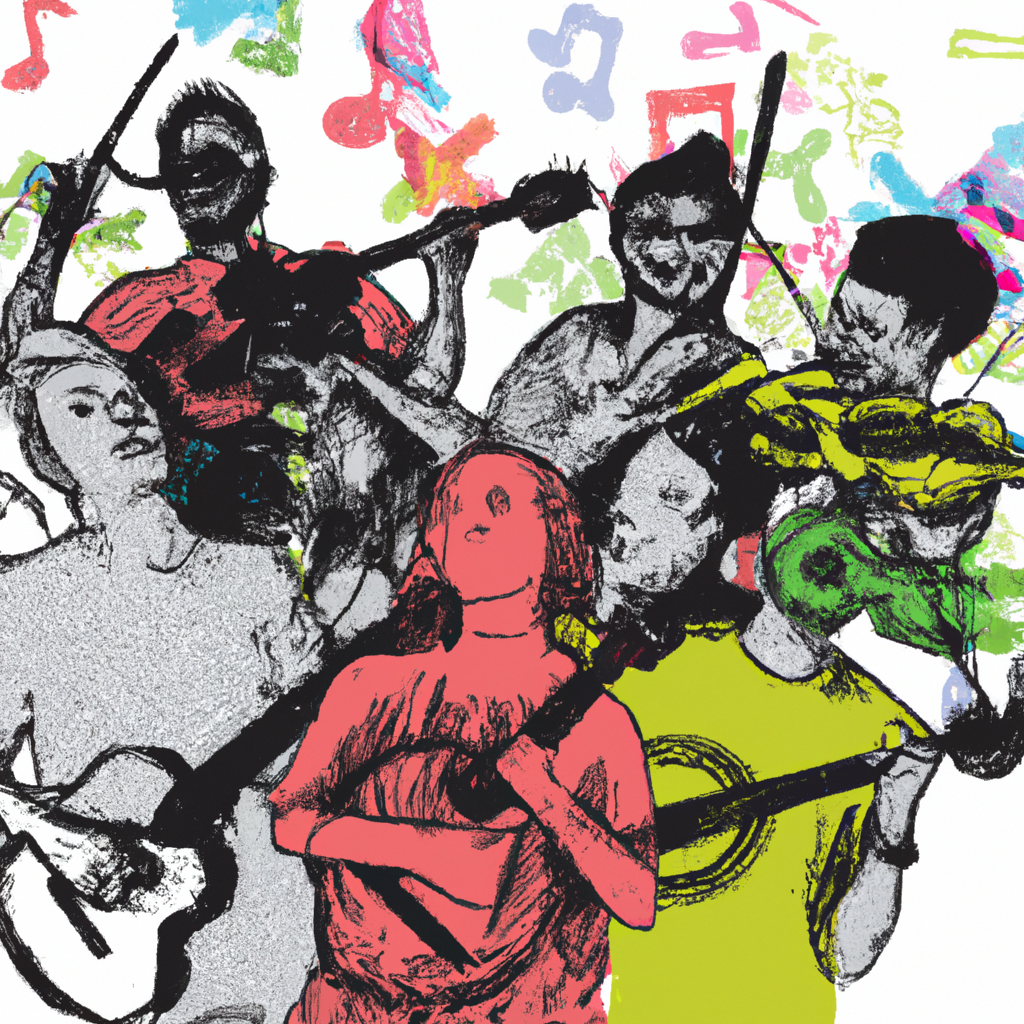
Self-Reflection and Personal Insight
Music can serve as a mirror, reflecting one’s inner thoughts and feelings. It provides a unique avenue for self-reflection and personal insight, helping individuals gain a deeper understanding of themselves.
- Journaling with Music: Combining music with journaling can enhance self-reflection. Listening to music while writing can evoke memories and emotions, leading to deeper introspection and personal insight.
- Mindfulness and Meditation: Music can be used as a tool for mindfulness and meditation. Listening to calming music can help individuals focus on the present moment, reduce stress, and gain clarity of
Thank you for reading our article on Music as a Tool for Personal Growth and Self-reflection. We highly value your feedback and invite you to take a brief survey to share your thoughts and experiences. Your responses will be kept confidential.
Dear Readers,
Welcome to my blog, where technology, music, and visual arts come together to spark creativity and growth. By subscribing, you’ll become part of a vibrant community committed to exploring and learning in these areas.
Select the type of engagement that suits you best:
Join us and enjoy tailored content and direct support suited to your interests.
